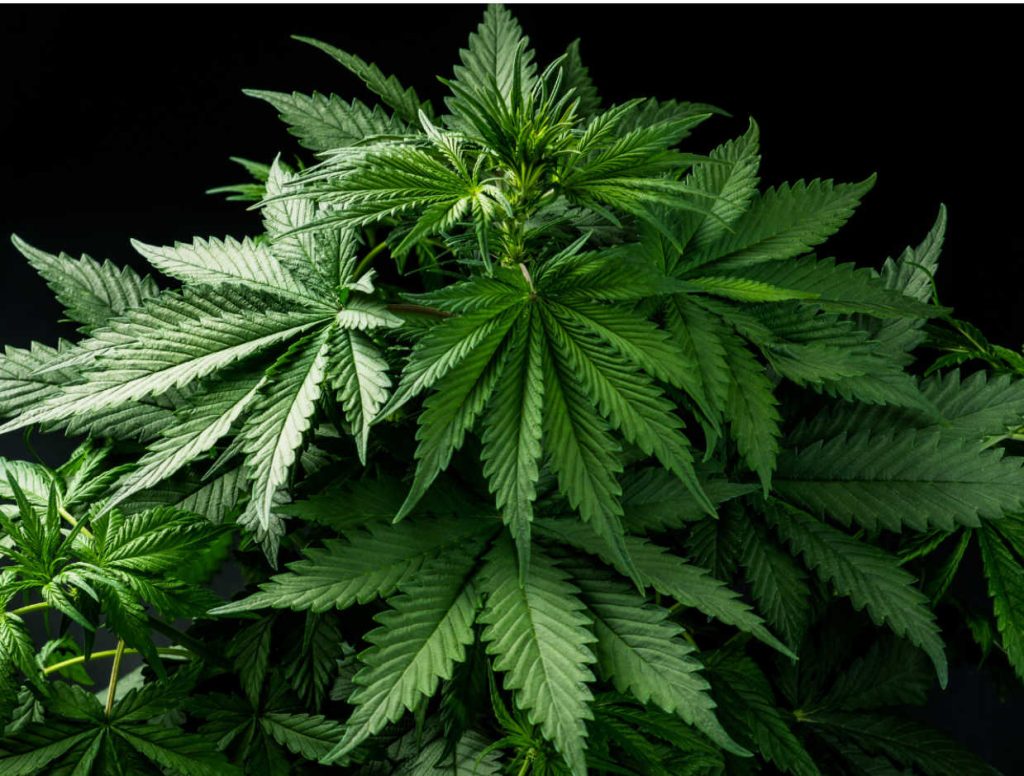The marijuana plant yields two compounds: cannabidiol (CBD) and tetrahydrocannabinol (THC). The former is often used for therapeutic purposes, while the latter provides consumers with a “high.” Synthetic THC was produced around the turn of the decade, which shocked the cannabis market.

THC vs. CBD
Cannabinoids are a group of over 113 chemical substances discovered in the cannabis plant. The two most well-known kinds of these chemicals, cannabidiol (CBD) and tetrahydrocannabinol (TCH), are frequently extracted for possible medicinal applications. Although the two substances are pretty similar, they differ in their chemical composition and how they affect the brain.
Since its discovery in the 1940s, CBD products, like CBD oil in Arvada CO, have become a popular natural therapy for various ailments. Unlike THC, CBD does not generate a “high” and may be extracted from hemp or marijuana.
THC, on the other hand, is a psychoactive component of cannabis. According to the National Institute on Drug Abuse, THC causes the brain to produce dopamine, which is associated with mood alterations and pleasure. Ingesting marijuana releases dopamine in significant quantities than usual, providing that euphoric experience users often seek.
What Exactly Is Synthetic THC?
Synthetic cannabis is a mind-altering substance sprayed onto dried plants and ingested or vaporized. Researchers stress that while synthetic cannabis may resemble THC, it produces a significantly more powerful molecule that produces a more intense “high.” Synthetic THC is called many names, the most well-known of which are K2 drug, spice drug, and Northern Lights.
Because of their comparable chemical makeup to marijuana, synthetic THC is often mistaken as a cannabinoid. Even when they are not, they are occasionally sold as a legal and safe alternative to THC. However, they are dangerous and have a more potent effect on the brain than marijuana. In certain circumstances, the consequences are more severe and even fatal.
Why Are Synthetic Cannabinoids Risky?
Synthetic cannabinoids are powdered compounds that are typically combined with solvents. As producers seek to comply with the legislation, the chemicals may differ from batch to batch. Despite having the same name and branding, various products might have different results.
THC, the main component in marijuana, functions similarly to synthetic cannabis. Synthetics attach to the CB1 receptor and fully activate it, whereas natural THC only partially activates these receptors. One of the reasons synthetic cannabis produces deadly consequences such as seizures and psychosis is its stronger influence on brain activity.
Synthetic cannabis products can potentially have toxic consequences. Users may experience rapid heartbeat, nausea, vomiting, disorientation, agitation, and hallucinations due to these drugs. Many people who use synthetic marijuana need immediate medical attention or admission to emergency rooms or intensive care units.
Synthetic Cannabinoids’ Health Risks
The effects of synthetic THC are the same as those of natural THC. However, makers create these imitations to have a higher “high” than natural THC products, which is where the problem comes from.
Excessive synthetic marijuana consumption may cause sleepiness and loss of hand-to-eye coordination. It might also induce vomiting and respiratory problems. In some instances, taking too many synthetic THC tablets might cause anxiety and paranoia.
When things go wrong, synthetic cannabis drugs can lead to hypertension, muscular tissue disintegration, and death.
Even though there have not been many scientific studies on the effects of synthetic cannabinoids on the brain, researchers know that some have a more vital interaction with THC-sensitive cells, generating more severe adverse effects. The outcomes can be unforeseen and possibly detrimental to one’s health.
What Does It Mean for the CBD Industry?
Even if medical specialists and cannabis industry innovators have acknowledged the distinction between artificial and natural chemical ingredients, individuals are still skeptical about CBD due to synthetic THC’s health risks.
The Food and Drug Administration in the United States is aware of rising concerns regarding delta-8 THC products offered online and in retail outlets. These products have not been reviewed by the FDA and are not safe for use in any situation.
Misinformation Threats
Some of these products are promoted as “hemp products,” which may mislead consumers who mistake “hemp” for “non-psychoactive.” The FDA is especially worried about the surge of delta-8 THC-rich products sold for medicinal or therapeutic claims without FDA approval.
CBD-infused products have become increasingly popular in recent years. The two chemical components appear to be the same to the uninitiated, and the fatal effects of unregulated synthetic cannabis harms CBD’s reputation.
Inadequate Regulations
According to their news release, the FDA supports science-based CBD manufacturing policies. CBD-infused goods, according to them, are of tremendous public interest, both for medicinal and non-therapeutic uses. However, there are numerous unanswered issues regarding most CBD products’ quality, science, and safety.
Meanwhile, distinct rules apply to food and dietary supplements. The primary purpose, though, is to safeguard customers. Selling CBD-containing food in interstate commerce is unlawful.
Need for Education
Educating people about cannabis and its components may help curb the widespread use of synthetic marijuana. Experts and medical experts feel that making CBD-infused products more widely available will raise public awareness of their advantages and use; and it would help consumers differentiate CBD products from synthetic THC products.
People in the cannabis sector feel that as the discourse about CBD and its advantages continues, more people will become aware of the products, and the stigma will gradually fade. CBD discussions should center on its health advantages, particularly for persons prone to panic and anxiety episodes. CBD-infused product regulations should also be simplified for company owners.
The Bottom Line
Since 2002, synthetic cannabinoids have been popular alternatives to marijuana. These manufactured products were developed in laboratories to aid scientists in studying the human brain’s cannabinoid system. There are hundreds of synthetic cannabinoids, and their effects can be unpredictable or even life-threatening. It’s essential to buy from a reputable source and obtain better alternatives like CBD-infused products to avoid health risks.







